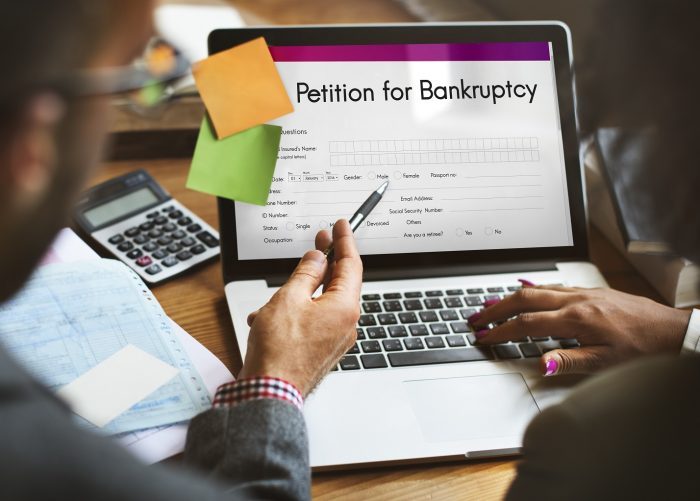No one ever wants to file for bankruptcy, but there are times when such a filing is unavoidable. If you’ve run into trouble with credit card debt, cannot meet your mortgage payments or have crippling medical expenses, a chapter 7 or chapter 13 bankruptcy may be your only way out of trouble.
Because bankruptcy is such a consequential legal decision, it’s critical to consider all your options beforehand. Once you’ve decided to proceed, the next step is to figure out which type of bankruptcy fits your situation. As always, it’s important to consult an attorney with experience in this area. With that in mind, let’s take a look at the key differences between filing for chapter 7 or chapter 13.
Chapter 7 Bankruptcy
Known as the liquidation bankruptcy, chapter 7 involves selling any property that is declared not exempt in order to satisfy debts. However, if you are current on your mortgage, and there isn’t a significant amount of equity in the property, you can usually hold onto it. You will, of course, have to enter into a payment schedule and must stay up to date on the payments. On the other hand, a chapter 7 trustee will sell the non-exempt portion of your assets to satisfy creditors.
Generally, most people wind up being able to keep their home, car and personal belonging while they work to eliminate their debts. In other words, people who file chapter 7 usually don’t lose their property because most of what they own is exempt or protected.
Benefits of Filing for Chapter 7
The advantage to declaring for chapter 7 is that it gives you the chance to start over. The bankruptcy discharges unsecured debts such as credit card balances while the ones you want to pay are included on a signed “Reaffirmation Agreement.”
Consequently, you get relief from debt collectors because creditors are not permitted to contact the debtor once the proceeding has started. Furthermore, you are shielded from wage garnishment during this time.
Another advantage to chapter 7 is that any money earned, or property acquired following the bankruptcy is exempt and will not be subject to creditors or bankruptcy courts. Initially, however, you will have to get rid of your credit cards and the bankruptcy may remain on your credit report for up to ten years.
Many people find chapter 7 attractive because it is one of the fastest and least expensive ways for an individual to discharge debts.
Although it will take its toll on your credit rating in the form of much higher interest rates, you should be able to reestablish your credit in a relatively short time following a chapter 7 filing. While it is always possible to raise your credit score regardless of whether your credit report still shows the bankruptcy, it will be very difficult to get a home mortgage if you don’t already have one. This is the case whether you file for chapter 7 or for chapter 13.
Nevertheless, a person should keep in mind that some debts cannot be eliminated such as student loans, recent tax obligations and alimony and child support.
Chapter 13 Bankruptcy
A chapter 13 bankruptcy is considered a reorganization because it enables you to retain some of your property if you agree to a repayment plan that settles all or a portion of your debt within three to five years. Many people wind up filing for chapter 13 because their income is too high to qualify for chapter 7.
Benefits of Filing for Chapter 13
One of the specific advantages to a chapter 13 bankruptcy is that it buys you time by stopping things like foreclosure proceedings while you work to redeem back payments on your mortgage. In return, you must adhere to an agreed-upon payment plan. Although these debts are not discharged during the procedure, they can be significantly reduced, thereby making them more manageable.
Similar to chapter 7, there is immediate protection from creditors and wage garnishments must cease as well. Unlike a chapter 7, a chapter 13 can be filed at any time, and a person can file as many times as needed.
Another advantage of chapter 13 over chapter 7 is that it enables an individual to reschedule their secured debts and extend them throughout the life of the plan. This may help to get caught up on mortgage payments, pay down auto loans to lower the payments, or try for a loan modification. It is also possible to sell some property to pay off debt.
Additionally, there are some kinds of debt which are not dischargeable under chapter 7 that can be taken care of through chapter 13.
Essentially, chapter 13 functions as a consolidation loan through which you can make one payment to a trustee who is assigned during the proceedings. While under the protection of a chapter 13 filing, you will not have any direct contact with creditors.
Another reason why you might prefer chapter 13 to chapter 7 is that you may have too much disposable income once you do not have large credit card payments, or you have non-exempt property that a chapter 7 trustee would sell.
If you are facing these kinds of decisions, you should take it upon yourself to do as much research on your own as possible; you should also consult an experienced bankruptcy attorney in order to understand your options. Regardless of your financial circumstances, you want to make sure that you choose the best avenue toward a much healthier financial future.
Sources
https://www.uscourts.gov/services-forms/bankruptcy/bankruptcy-basics/chapter-13-bankruptcy-basics




